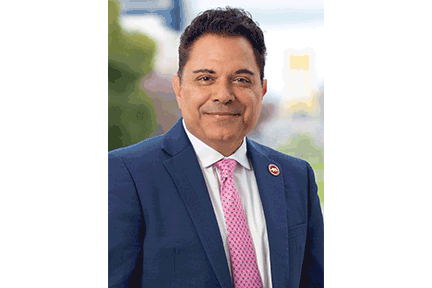Senator Steve Padilla (D-San Diego) has introduced a bill that would seek to hire teachers quicker and address the teacher shortage by making the requirements to become a teacher “easier”.
Essentially, through the bill, AB 995, it cuts off 2-years of coursework needed to become a teacher from 6-years down to 4-years. The bill would require a 5-year pilot program to meet certain requirements, including, among other requirements, that it establish transfer model curriculum and an associate degree for transfer at a community college campus that can then be completed at a California State University campus that will result in the participating student being awarded a baccalaureate degree and a teaching credential in 4 years
The bill also sites that one-third of teachers in the state are over 50-years old and the age demographics pose a threat to the states education system. Meanwhile, enrollment in the California State university system for teachers dropped 59% between 2003-2022. The bill also cites most teacher training programs are 5-years and it creates a cost and time hurdles.
Senator Padilla Introduces Bill Reimagining California’s Teacher Credentialing Process and Reducing Critical Teacher Shortage
SACRAMENTO – Senator Steve Padilla (D-San Diego) introduced Senate Bill 995, a bill aimed at addressing California’s severe teacher shortage and improving the education outcomes of California students.
In California and across the country, schools are confronting a dire teacher shortage. A study conducted by the National Center for Education Studies reported that about 37% of public schools had at least one teacher vacancy and about 44% of public school students started the 2023-2024 school year behind grade level in at least one subject. These shortages and impacts were found to be most acute in schools with higher minority populations and neighborhood poverty rates.
With a shrinking pool of qualified teacher applicants, school districts are being forced to make difficult choices such as increasing class sizes and having unsupervised, uncredentialed interns teach classes. This crisis is being driven by two factors: an acceleration in teacher retirements, coupled with a dramatic drop in enrollment in teacher credentialing programs. There is a large cohort of teachers approaching retirement age, and the Covid-19 pandemic has increased retirements across the board. A 59% decrease in teacher credential enrollment at California State Universities (CSU) over the past two decades has further exacerbated this issue.
Additionally, California has a low rate of diversity in its teaching force as 64% of teachers in California identify as white and only 2.7% as black. Research shows that teacher diversity increases the performance of minority students. Studies have shown that students of color with one or more teachers with the same racial identity as them are more likely to perform better in the classroom.
Thirteen years ago, SB 1440 authored by Senator Alex Padilla strengthened and expanded the transfer agreements between California Community Colleges (CCC) and CSUs to allow students to transfer more seamlessly between institutions. This change made college more affordable and accessible by making transferring from a CCC a more streamlined process. This change excluded teacher credentialing which remained a five-year program at many institutions. However, five years is often only the best-case scenario for many students, assuming they take all the correct courses in the correct order. This model acts as a disincentive for students to become teachers by requiring another year of tuition cost and lost wages and makes California an outlier as most other states have moved toward a four–year model.
“Our teachers dedicate their lives to uplifting and educating our children, working long hours for pay that would be unacceptable in any other profession,” said Senator Padilla. “We need to be removing administrative barriers for those seeking to answer their calling as an educator, not burdening them with further student debt.”
SB 995 would build off of existing partnerships between CCCs and CSUs and establish transferable curricula to gain a Bachelor’s Degree and a Teaching Credential in four years. The bill would require the creation of a pilot program at three partnering CSUs and CCCs. CSUs would also be required to perform outreach to local high schools to recruit candidates from underserved populations.
Implemented on a large scale, the pilot programs established through SB 995 would expand pathways to becoming a teacher and increase diversity in the profession by making it more accessible to low-income and minority students thus improving education outcomes for students of color and addressing California’s pressing teacher shortage.
SB 995 will be heard in the Senate in the coming months.
Steve Padilla represents the 18th Senate District, which includes the communities of Chula Vista, the Coachella Valley, Imperial Beach, the Imperial Valley, National City, and San Diego. Prior to his election to the Senate in 2022, Senator Padilla was the first person of color ever elected to city office in Chula Vista, the first Latino Mayor, and the first openly LGBT person to serve or be elected to city office. Website of Senator Steve Padilla: https://sd18.senate.ca.gov/
Editors Note
- Aug 15 – Tony Thurmond Launches Statewide Coalition with Teacher Recruitment Summit
- July 14 – Bill to Raise Teacher and School Employee Salaries by 50 percent Moves Forward


2 comments
The concept of streamlining credentialing has merit. Hmm…I wonder what the reaction of the teachers’ unions will be.
Teaching in the U.S is in a crisis. It has become glorified babysitting of entitled losers and their loser kids.
Comments are closed.